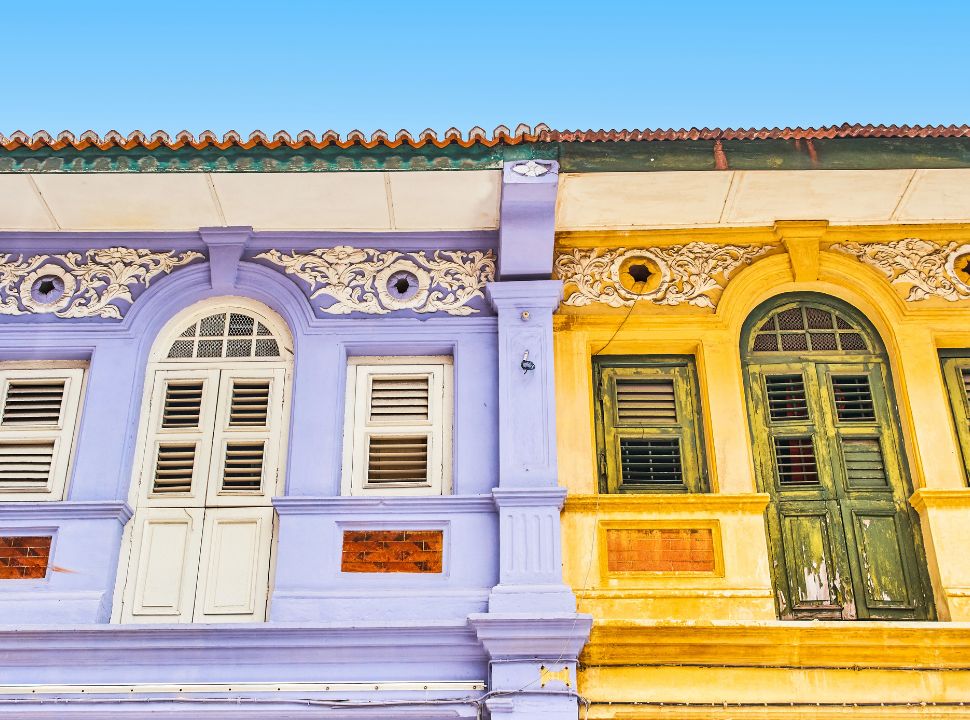Is Malaysia a Good Place to Live in 2025? The Honest Pros & Cons
So, you’re wondering, is Malaysia a good place to live? You’re not alone!
Malaysia holds a special place in our hearts. I lived there with my parents in the late 1980s while Matt lived in Kuala Lumpur for his studies in 2002. Since then we returned a couple of times. Malaysia has left a lasting impression on us and is still on top of our list to move back to.
And we fully get it when expats, retirees, and digital nomads are wondering if Malaysia is a good place to live. Besides the pros, you need to be aware of the cons. These might have you thinking twice about moving to this popular Asian country.
As someone who has spent time exploring both the bustling cities in Malaysia and beautiful beaches, I’m here to give you the real deal. Just an honest look at the pros and cons of living in Malaysia so you can decide if it’s the right move for you.
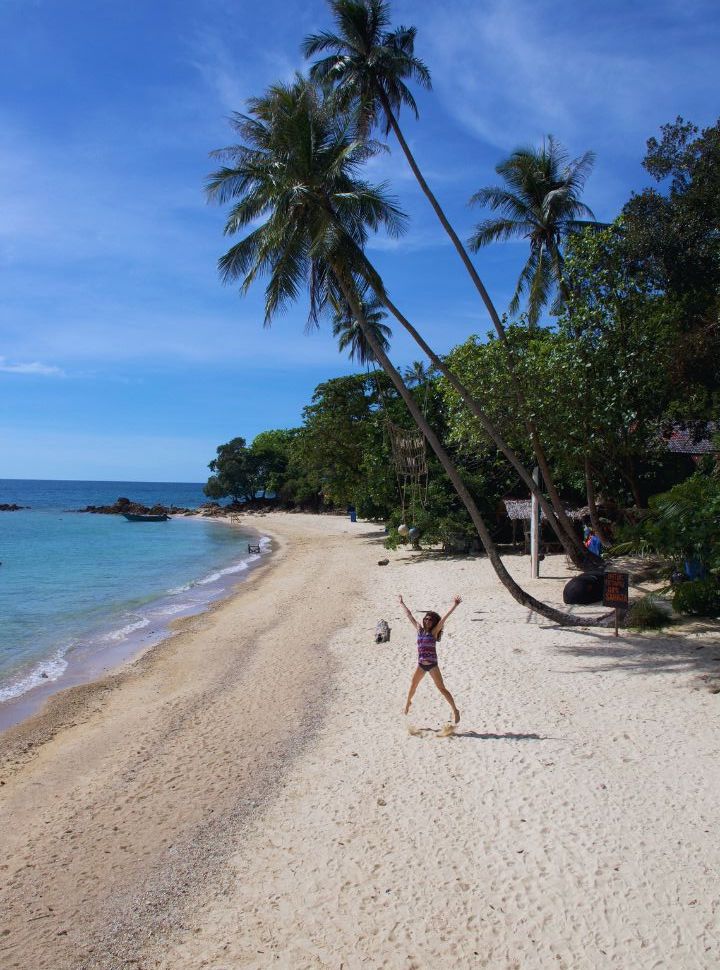
The Good Stuff: Why Expats Love Living in Malaysia
Pro #1. The Cost of Living is Pretty Amazing
Malaysia is a budget-friendly paradise if you’re from the US, Australia, UK, or any other European country.
Renting
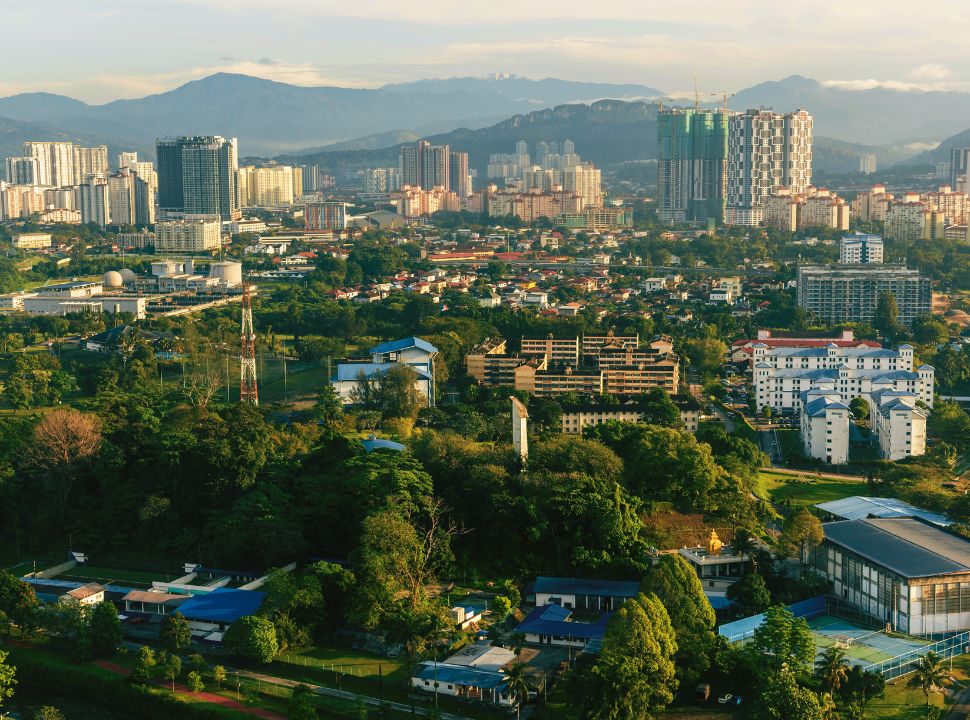
Renting is much more affordable than in Western countries. A high-end 2-bedroom apartment with communal facilities such as a swimming pool and gym in Kuala Lumpur city center is around RM 4,228 ($900-$1,000) per month.
Like everywhere in the world, living in big cities is much more expensive. So to cut costs on rent, you can look at nice neighborhoods outside Kuala Lumpur or better yet, head to smaller cities such as Ipoh, Malakka and Johor Baru.
In these cities, you can find 3-bedroom apartments for RM 2,571 ($550-$600).
Buying
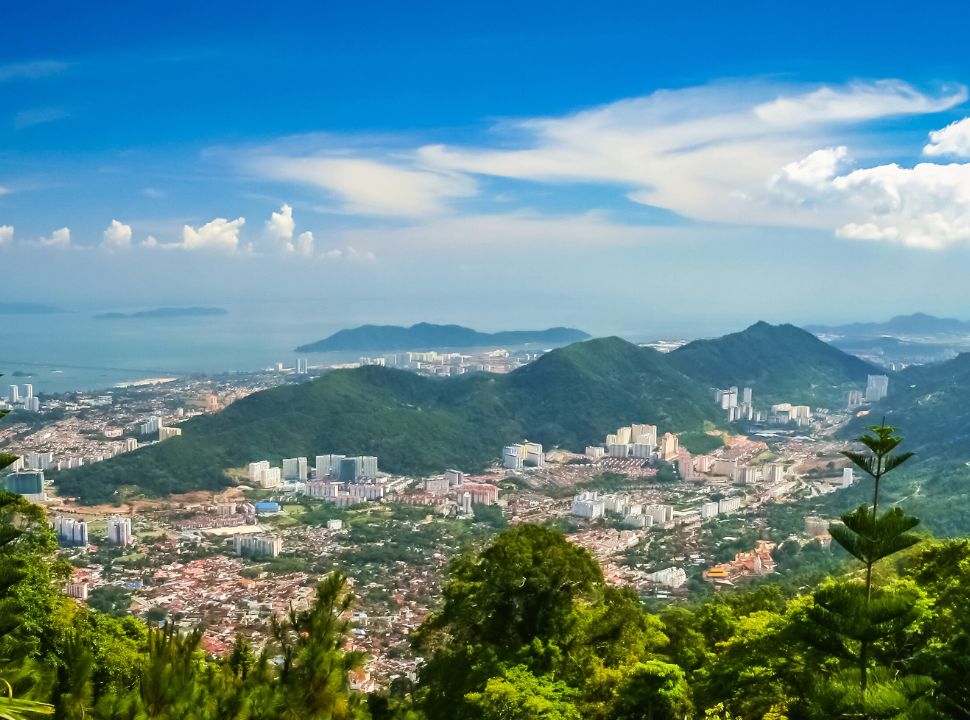
If you are set on buying property, then it is possible. But there are some restrictions. The biggest one is that foreigners must buy properties over RM1 million ($215,000), and some restrictions apply. While this may seem expensive, Malaysia offers a range of luxurious and affordable real estate options.
Popular expat-friendly areas like Kuala Lumpur, Penang Island, and Johor Bharu provide a variety of condos, houses, and gated communities with excellent amenities.
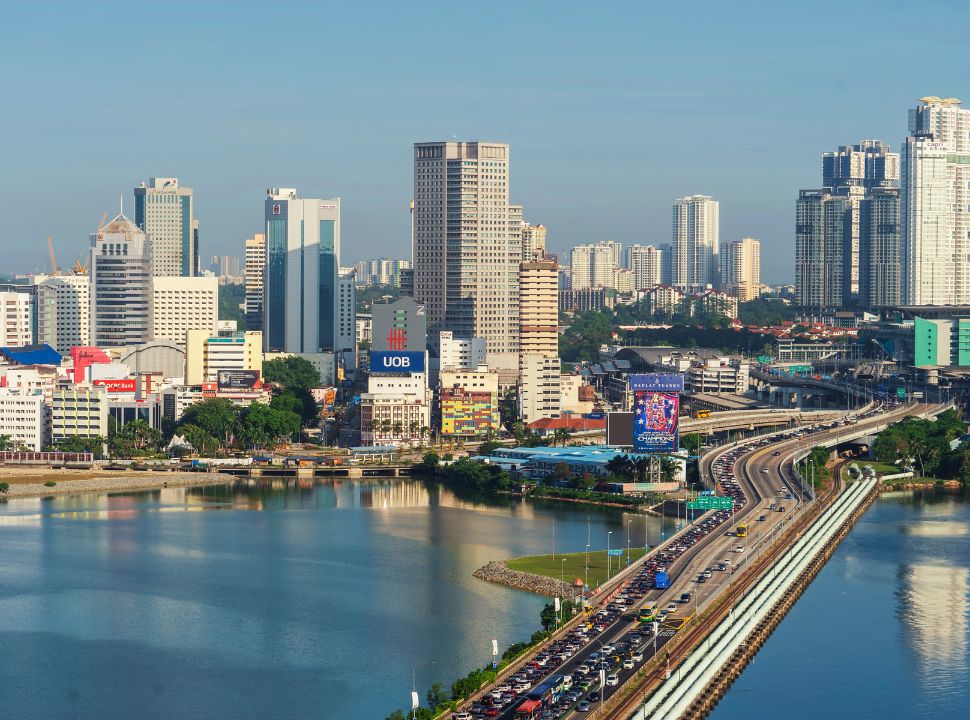
Additionally, property ownership in Malaysia often comes with lower maintenance costs and property taxes compared to Western countries. However, navigating the legal process can be complex, so hiring a local real estate expert is highly recommended
When living in Malaysia as a couple with a comfortable lifestyle for a couple expect to pay $2,000 – $3,500 per month for rent, food, and entertainment.
Pro #2. A Food Lover’s Dream
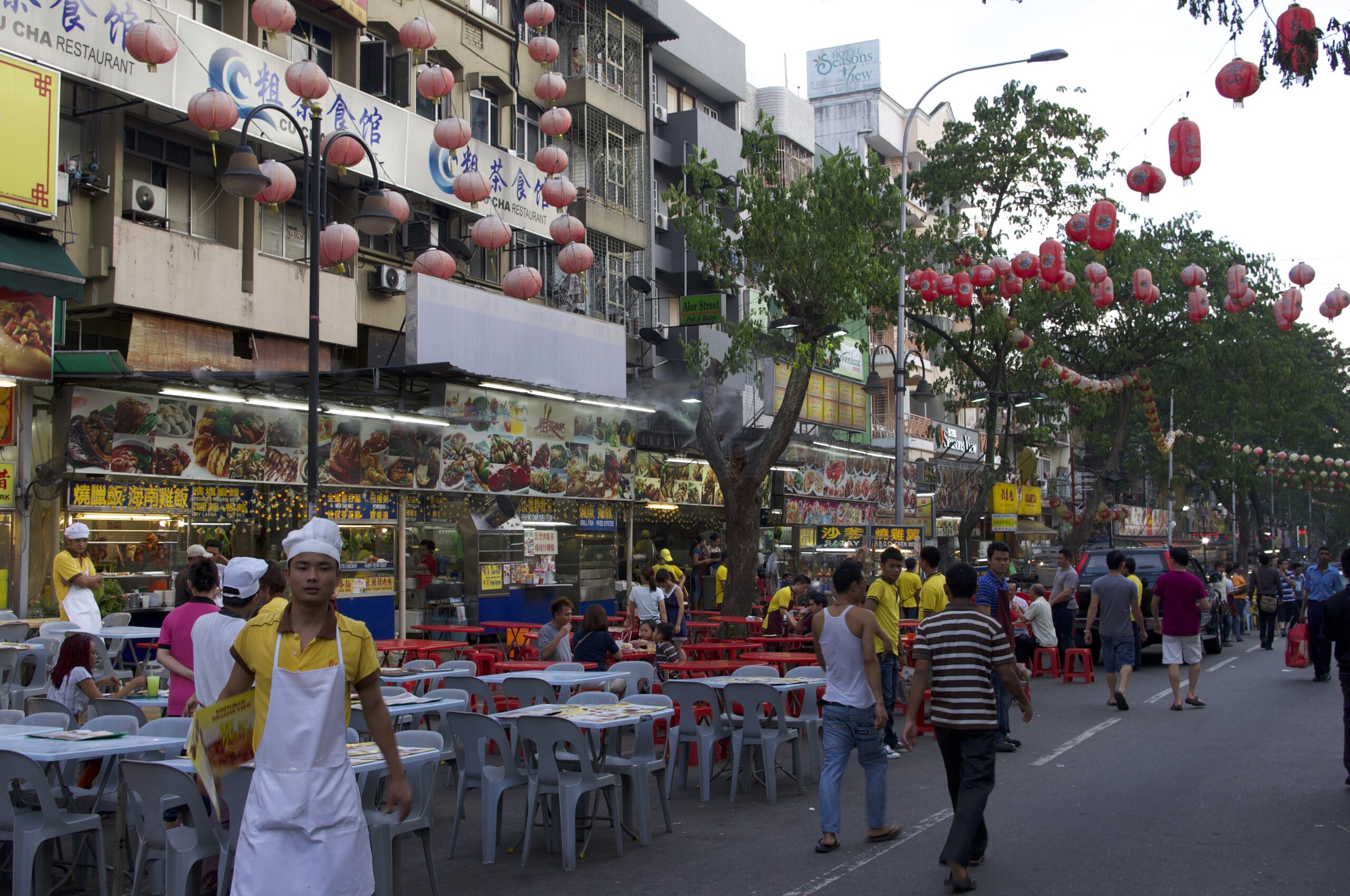
Malaysian local cuisine is legendary, and it’s one of the biggest reasons expats fall in love with the country. The diverse mix of Malay, Chinese, and Indian cuisines creates a food scene that is nothing short of spectacular.
Eating out is incredibly cheap. A local meal can cost as little as RM 9 ($2).
Malaysia is known as a Street Food Heaven. Famous places for incredible good food are Jalan Alor in Kuala Lumpur and Gurney Drive in George Town Penang. Here you can enjoy sizzling satay, fragrant laksa, and crispy roti canai. These food streets are buzzing at all hours, offering cheap and delicious meals.
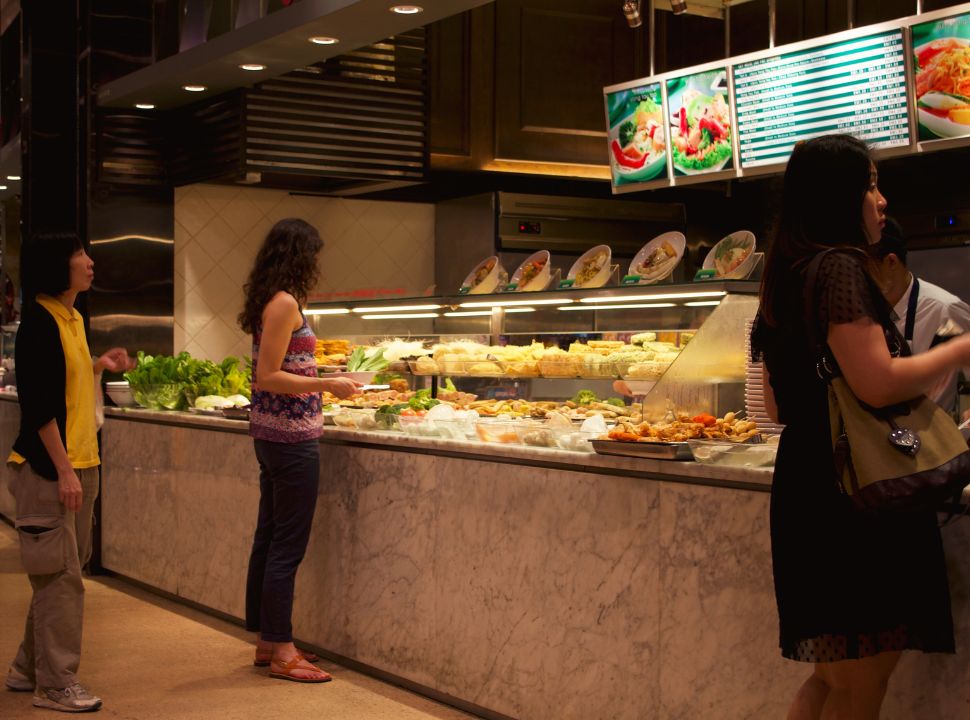
While Penang is a small island, it is often called the food capital of Malaysia and even South East Asia. This is definitely the place for food lovers. Famous dishes that will have you moving in no time are:
- Penang Assam Laksa – A tangy, fish-based noodle soup that is a UNESCO-listed dish.
- Char Kway Teow – A smoky, wok-fried noodle dish loaded with prawns, eggs, and lap cheong (Chinese sausage).
- Hokkien Mee – A flavorful prawn noodle soup with a rich, umami broth.
- Nyonya Cuisine – A blend of Malay and Chinese influences, featuring dishes like Kapitan Chicken and Otak-Otak (grilled fish cake wrapped in banana leaves).
- Cendol – A refreshing dessert of shaved ice, coconut milk, and green pandan noodles, perfect for the hot weather
- Nasi Lemak – coconut rice often served with dried fish and served as breakfast.
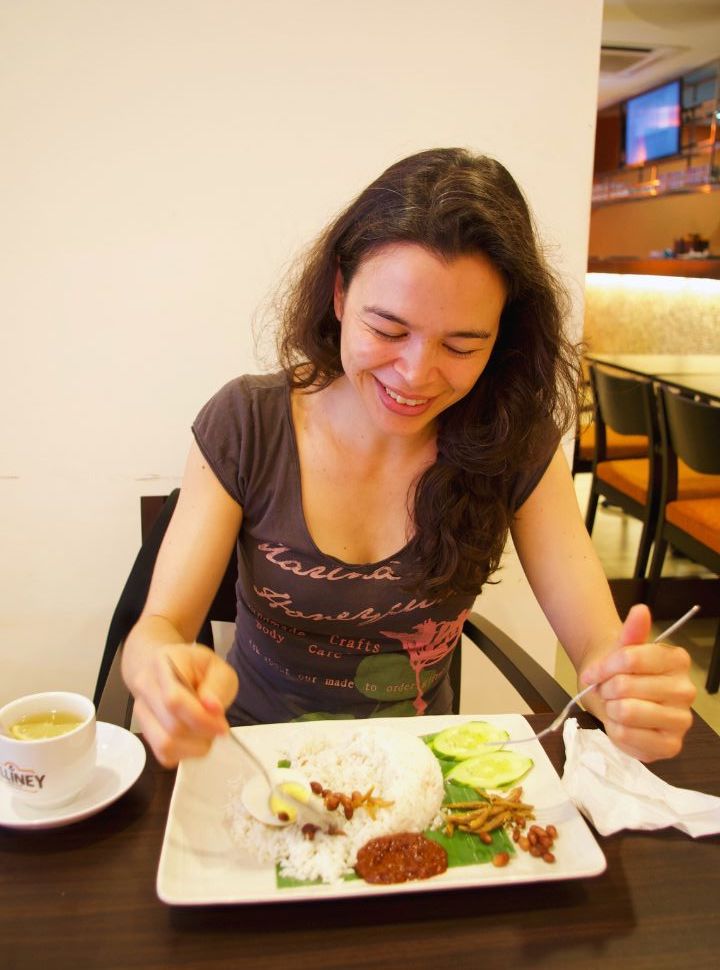
Besides the typical Malay food, there are numerous choices in Fusion & Western Options. If you crave something familiar, Malaysia has plenty of international restaurants. Penang and KL are home to a thriving cafe scene, offering everything from artisanal coffee to gourmet burgers.
And let’s not forget the Tropical Fruits & Markets. The local market is the place to buy exotic fruits such as mangosteen and the all-time favorite rambutan.
What about the infamous Durian! When you first encounter it in Malaysia, you might hate the smell, but trust me, give it time. Once living here, it won’t be long before you find yourself appreciating its unique flavor. That’s when you know you’re truly blending in with the locals. 😄
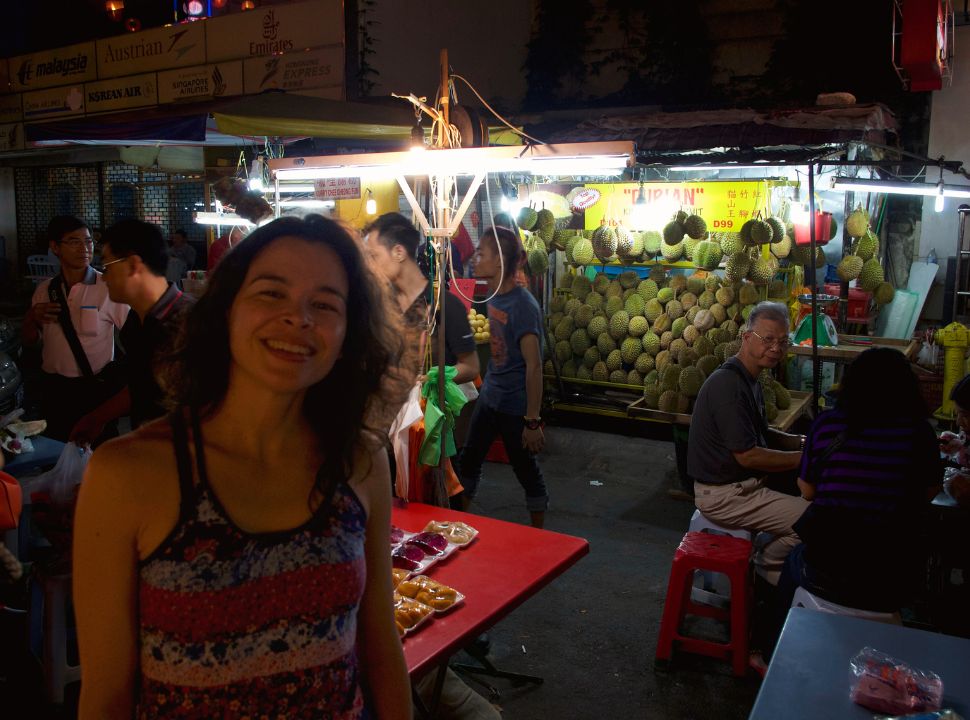
I always feel lucky when I can visit Malaysia during the durian season. Not only do I love the taste, but it isn’t a fruit you eat alone. It brings friends, family, and even strangers together when sharing this spiky fruit. incredibly fortunate every durian season when I visit Malaysia.”
Food is a way of life in Malaysia, and with such variety, you’ll never get bored of eating here!
Pro #3. English is Widely Spoken
The official language in Malaysia is called Bahasa Malaysia, or Malay. You won’t struggle too much if you don’t speak Malay. English is commonly used, especially in cities and among expats. The Malay people are known for their warmth and hospitality, making it easy to integrate into the community.
Street signs, menus, and official documents are often in both Malay and English, making it easy for expats to navigate daily life.

I experienced firsthand the hospitality that makes settling in Malaysia so seamless for expats. Whether it was making friends at local markets or participating in community events, I found Malaysians welcoming and eager to share their traditions.
Pro #4. Plenty of exciting Places to Live
Malaysia offers a diverse range of living options suited to different lifestyles. Whether you’re a professional looking for a fast-paced urban life in one of the big cities, a retiree seeking a peaceful island retreat or someone who loves history and affordability Malaysia caters to a variety of preferences.
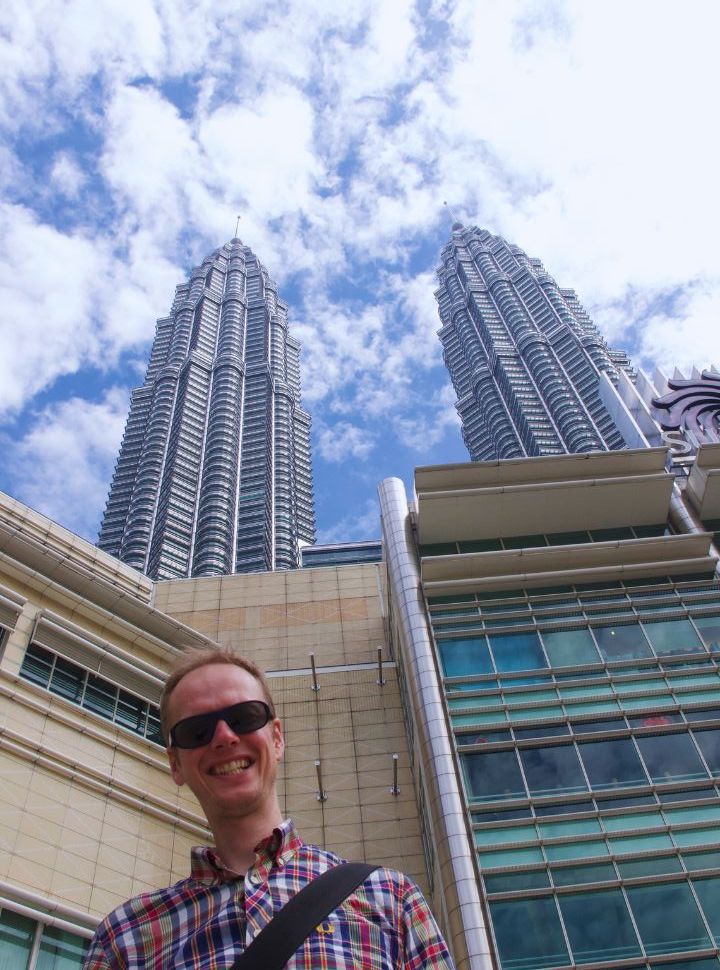
The most popular expat places in Malaysia are:
- Kuala Lumpur – Great for professionals, urban life, and nightlife. A modern city that offers everything such as shopping malls, many restaurants, and entertainment and recreation.
- Penang – A relaxed island vibe with amazing food and history. This island is particularly popular among expats for its many modern facilities.
- Langkawi – A tax-free island paradise perfect for retirees and digital nomads seeking a laid-back lifestyle.
- Ipoh – Hidden gems with rich history and low costs.
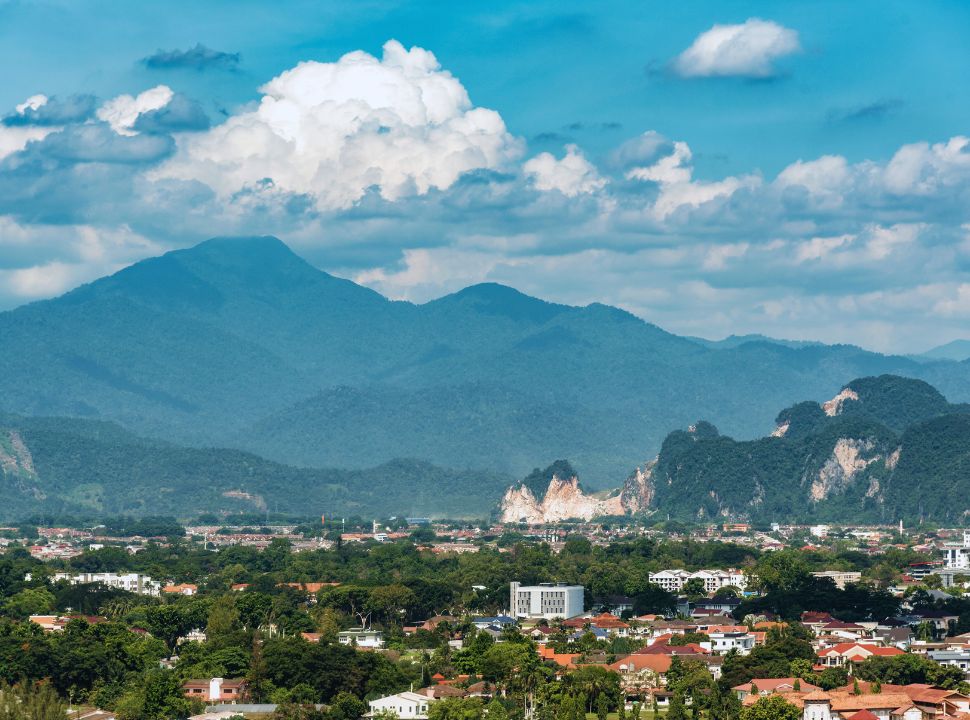
- Kota Bharu – A cultural hub with traditional Malay charm and low living costs.
- Sabah (Kota Kinabalu, Sandakan) – Stunning natural beauty, excellent diving, and a slower pace of life.
- Sarawak (Miri, Sibu, Bintulu, Kuching) – Low cost of living, lush rainforests, and growing expat communities.
Pro # 5. Stunning Wildlife & Nature
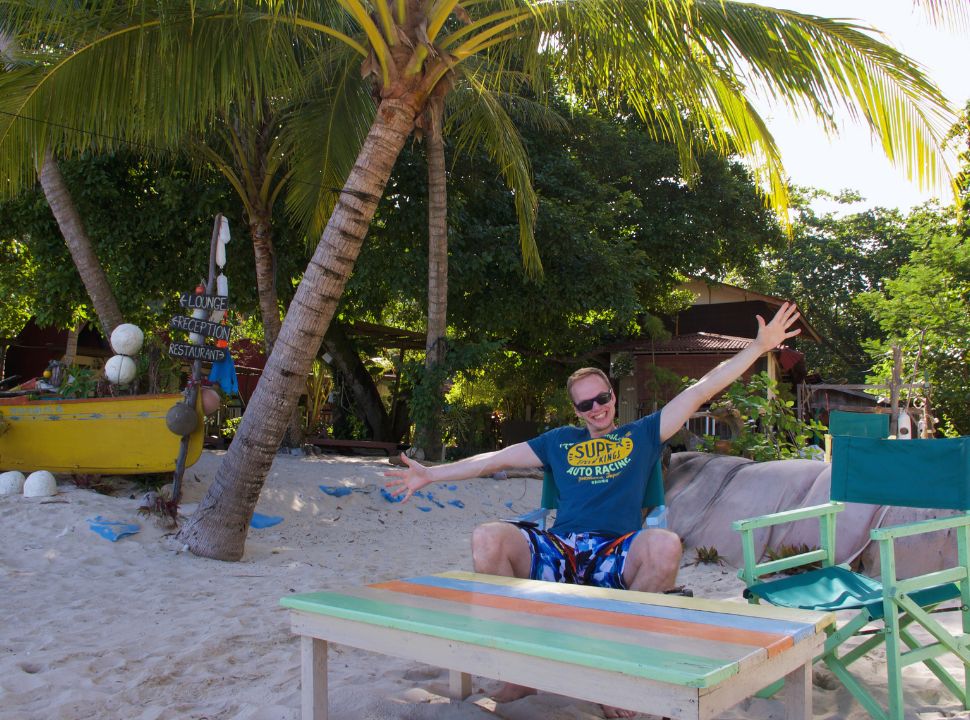
Malaysia is a paradise for nature lovers. Whether you prefer lounging on white sandy beaches, trekking through mountains, or settling in a charming town, Malaysia offers so much to do. You will have enough to explore when living in Malaysia.
- Best Beaches: Langkawi, Perhentian Islands, and Tioman Island are famous for their crystal-clear waters and tropical vibes.
- Best Mountain Escapes: If you need a break from the heat, head to the Cameron Highlands or Genting Highlands, where you’ll find cool weather, tea plantations, and scenic hiking trails.
Exploring Sabah & Sarawak: Malaysia’s Wild Side

For those looking for adventure, the states of Sabah and Sarawak are the places to be. Both are located in East Malaysia on the island of Borneo. They offer incredible nature, wildlife, and cultural experiences.
- Sabah Highlights:
- Mount Kinabalu – Malaysia’s highest peak, a must for hiking enthusiasts.
- Sipadan Island – One of the world’s best diving spots, with vibrant marine life.
- Sepilok Orangutan Rehabilitation Centre – A sanctuary for rescued orangutans, providing a rare chance to see them up close.

- Sarawak Highlights:
- Kuching – A charming city along the Sarawak River, known for its laid-back atmosphere and unique blend of diverse cultures.
- Bako National Park – Home to stunning coastal cliffs, mangroves, and the rare proboscis monkeys.
- Mulu Caves – A UNESCO World Heritage Site featuring some of the world’s largest cave systems.
Sabah and Sarawak provide a completely different experience from mainland Malaysia, making them perfect for nature lovers and those seeking a slower-paced lifestyle.
Pro #6. Travelling Is A Breeze
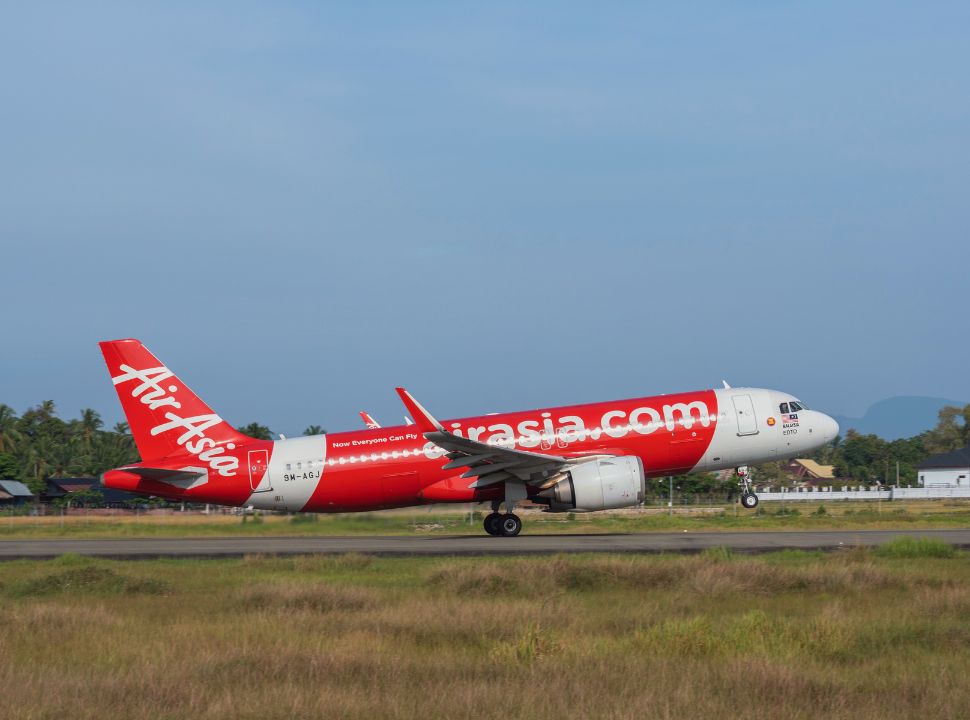
With cheap flights and short distances, Malaysia is the perfect hub for exploring Asia.
- Direct flights to major cities in Europe, the US, and Australia.
- 1-hour flight to Singapore.
- 2-3 hours to Bali, Thailand, and Vietnam.
- 2.5 hours to Kota Kinabalu (Sabah) from Kuala Lumpur.
- 1.5 hours to Kuching (Sarawak) from Kuala Lumpur.
- Short domestic flights to Malaysian islands like Langkawi (1 hour from KL) and the Perhentian Islands (flight + boat transfer in 2-3 hours).
Malaysia’s location gives you the luxury and easy access to explore more of the stunning country and other Asian countries.
Pro #7. Healthcare is Great (But You Need Private Health Insurance)

Malaysia is recognized as one of the top destinations in Asia for high-quality and affordable healthcare. According to international healthcare rankings, Malaysia consistently performs well in terms of accessibility, affordability, and quality of medical care.
- Ranked among the top medical tourism destinations worldwide, Malaysia attracts thousands of international patients each year.
- World-Class Facilities: Hospitals such as Prince Court Medical Centre, Gleneagles Hospital, and Pantai Hospital are accredited by the Joint Commission International (JCI), ensuring high medical standards.
- Highly Trained Professionals: Many doctors in Malaysia are trained in the UK, US, and Australia, offering expertise at a fraction of the cost found in Western countries.
- Affordable and Excellent Healthcare: Malaysia’s medical costs are significantly lower compared to the US and Europe, while still maintaining world-class standards.
- Government Support: Malaysia’s Ministry of Health actively promotes medical tourism and healthcare advancements, ensuring continuous improvements in the sector.
Whether you need routine check-ups, major surgery, or specialized treatments, Malaysia’s healthcare system provides high-quality care at reasonable costs, making it a popular destination for expats and medical tourists a like.
Pro #8. Plenty of International Schools Available

For expats moving with children, Malaysia offers a range of high-quality international schools. Some of the top options include:
- The International School of Kuala Lumpur (ISKL) – One of the most prestigious international schools in Malaysia, offering American and IB curriculums.
- Alice Smith School (KL) – British curriculum, highly regarded by expats.
- Garden International School (KL) – Offers British and IB programs, known for its diverse student body.
- Nexus International School (Putrajaya) – Offers the IB curriculum, emphasizing digital learning.
- Mont’Kiara International School (KL) – American curriculum with an emphasis on extracurricular activities.
- Prince of Wales Island International School (Penang) – British curriculum, excellent facilities.
- Tenby Schools (Multiple Locations) – Offers British and Malaysian curriculums.
- Marlborough College Malaysia (Johor Bahru) – A prestigious British boarding school in Malaysia.
- Fairview International School (Multiple Locations) – A strong IB curriculum school.
- Pelita International School (Penang) – Affordable yet high-quality education with a British curriculum.
Many international schools are located in Peninsular Malaysia such as in Kuala Lumpur, Penang, and Johor Bahru. They provide world-class education for expat families.
Tuition fees can be pretty high. So if you are moving to Malaysia independently (so not invited by a company) then you will have to recalculate your cost of living per month and see if it’s still attractive.
Pro #9. Safety: A Peaceful Haven for Expats

One of the biggest draws of Malaysia is how safe it feels, especially compared to many other Asian countries. Whether you’re walking through the bustling streets of Kuala Lumpur or exploring the quieter towns like Ipoh, there is a sense of security that makes life here comfortable.
I have traveled solo through Malaysia many times. Staying in cities like Kuala Lumpur, Kota Kinabalu, and Georgetown. Not once did I feel unsafe. The cultural diversity and the familiarity with tourists, make you blend in easily in the crowd.
If you are wondering if Kuala Lumpur is a safe city to explore or live in, check out our post where we focus more on safety.
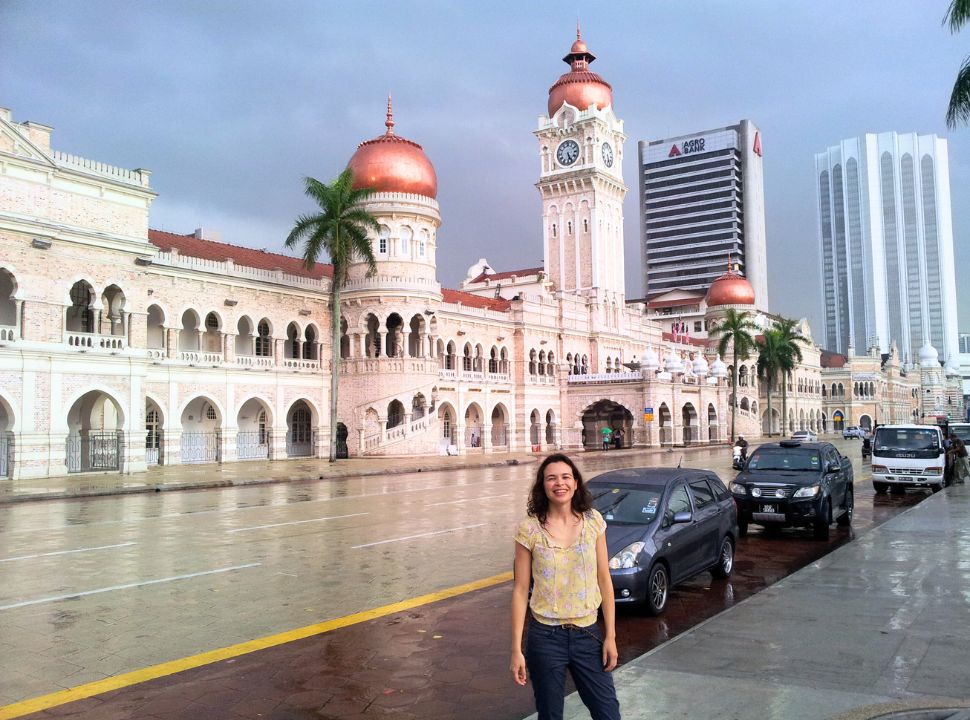
Malaysia is particularly safe for:
- Low Crime Rates: Violent crime is rare, and most expats report feeling safe even at night. Petty crimes like pickpocketing can happen in crowded areas, but they’re not common if you stay aware of your surroundings.
- Expat-Friendly Neighborhoods: Areas like Mont Kiara and Bangsar in Kuala Lumpur, or George Town in Penang, are known for their safety and are popular among expats.
- Natural Disaster-Free: Unlike some countries in Southeast Asia, Malaysia isn’t prone to earthquakes, typhoons, or other major natural disasters. The worst you might face is occasional flooding during the monsoon season, but even that is localized and manageable.
So, if safety is a top priority for you, Malaysia ticks that box with ease. It’s a place where you can let your guard down a little and just enjoy life.
The Cons (Because No Place is Perfect)
Con #1. Humidity and Heat
The weather in Malaysia can be a shock. With a tropical climate, you can expect 90°F (32°C) all year round with high humidity. Love the summer feeling? You’re golden. Hate sweating? Think twice.

Con #2. Bureaucracy Can Be Slow
Government paperwork can be frustrating. Whether it’s applying for a visa, setting up a business, or dealing with local authorities, expect delays and red tape.
Con #3. Limited Public Transportation Outside Major Cities
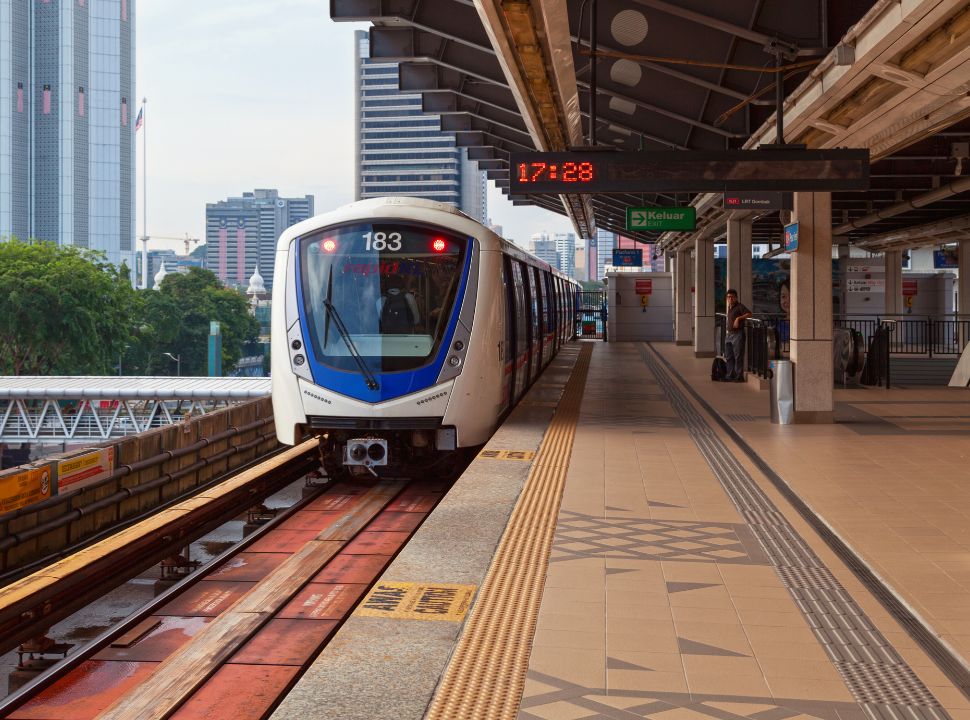
While Kuala Lumpur has an efficient MRT and LRT system, other cities like George Town on Penang Island and Johor Bahru rely more on buses and taxis.
If you live outside major urban areas, having a car is almost necessary.
Con #4. Cultural & Religious Differences

Malaysia is a multi-religious country, but Islam is the dominant faith. Expats should be mindful of cultural norms, such as conservative dress codes in rural areas, and respecting religious practices.
While people are free to practice another faith, Malaysia is a Muslim country. That said, in the years I lived there with my parents and the times we visited we never felt like the muslim rules were opposed to us.
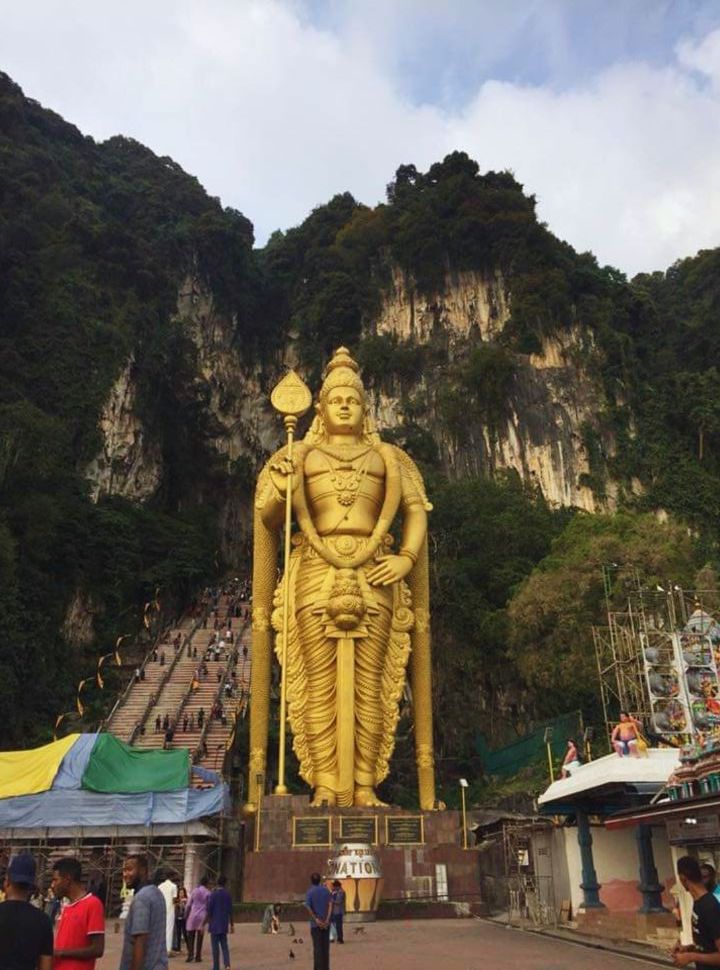
On the contrary, I felt like I could wear shorts (not too short) and shirts (not tank tops) without a problem unlike what I experienced on the island of Sumatra in the neighboring country Indonesia.
Con #5. LGBTQ+ Rights
Malaysia is a conservative country, and LGBTQ+ rights are limited. Public acceptance is low, and same-sex relationships are illegal.
Con #6. Traffic in Cities
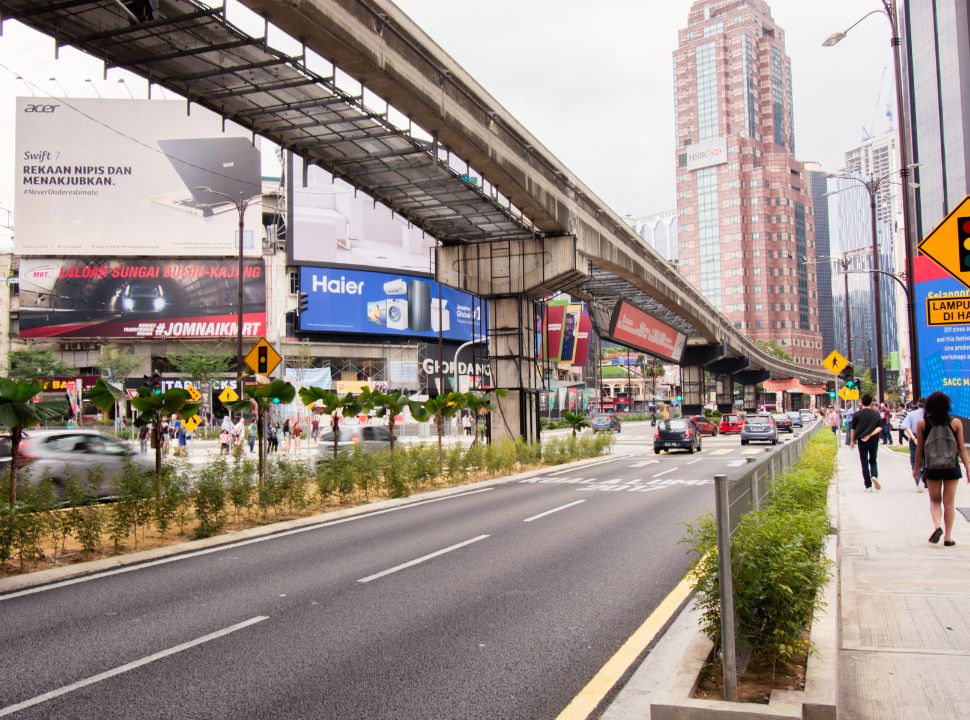
Kuala Lumpur’s traffic is infamous. Rush hour can feel like a never-ending crawl. For daily commutes, consider using the MRT or LRT. It’s faster, cheaper, and less stressful than driving.
Be aware that while it isn’t Kuala Lumpur, Pengan and Johor Baru experience traffic jams too.
Con #7. Visa Hassles

While Malaysia offers several long-term visa options (digital nomad, work, My Second Home MM2H), the process can be bureaucratic, time-consuming and expensive.
And even though there are more chances to move to Malaysia since they have implemented the 2-year Digital Nomad Visa, you still need to fulfill a lot of requirements to obtain it.
The same goes for the MM2H (My Second Home) Visa. To qualify, you’re required to transfer a significant sum of money into your personal Malaysian bank account. Over the years, the financial requirements have risen substantially, making it increasingly challenging for many to meet the eligibility criteria for this visa.
FAQs About Living in Malaysia

1. Is Malaysia safe?
Malaysia has low violent crime rates, and most expats feel safe, especially in gated communities and well-populated urban areas. Like any country, petty crimes like pickpocketing exist in crowded places, so basic precautions are advised.
2. Can I live in Malaysia without speaking Malay?
English is widely spoken, especially in urban areas, business districts, and expat communities. Many Malaysians are bilingual, making it easy for expats to communicate.
What’s the healthcare in Malaysia like?
Malaysia has high-quality healthcare at an affordable price. Private hospitals like Gleneagles and Prince Court Medical Centre are internationally accredited, and medical tourism is booming due to the low costs and world-class care.
4. How’s the internet in Malaysia?
Malaysia is fast and reliable, especially in urban areas. Perfect for digital nomads.
5. What’s the best time to visit Malaysia?
With its warm temperatures, Malaysia can be considered an all-year-round destination. However during the monsoon season from November till February avoid the east coast.
6. Can foreigners buy property in Malaysia?
Foreigners can buy property but it must be at least worth RM1 million ($215,000 USD). There are no restrictions on owning freehold property, but some states have specific rules.
Final Thoughts: Is Malaysia a Good Place to Live?
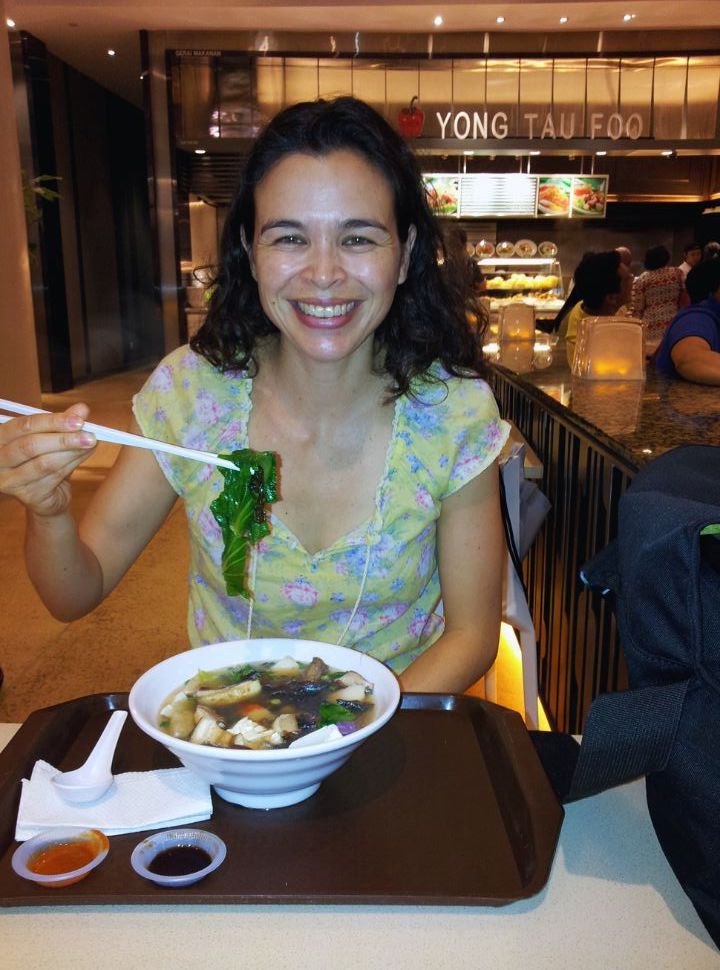
So, is Malaysia a great place to live? It really depends on what you’re after. If you’re seeking adventure, affordability, and a rich culture, Malaysia could be your ideal destination. But if you’re sensitive to the heat, value LGBTQ+ rights, or can’t stand traffic jams, it might be a bit of a challenge.
We’re still in a bit of a dilemma: schooling is expensive, and the visa situation feels uncertain. We could opt for a digital nomad visa, but it’s only valid for two years with a one-time extension.
If our finances are in order, we might consider the MM2H retirement visa, which requires a minimum age of 25 years. The catch is that you need to transfer a substantial amount of money into a Malaysian bank account, and it can only be used for specific purposes. Plus, while the Malaysian Ringgit has been stable over the years, you never know how changes in the economy could affect the value of your transfer.
If we would move to Malaysia we would go to Penang, or perhaps even venture beyond the Malay Peninsula to seek the nature, beaches, and laid-back lifestyle of Kuching.
No matter what we decide, Malaysia always leaves a lasting impression. From its bustling cities to its pristine jungles, it’s a country that invites you to explore, indulge, and truly live. We absolutely love it here and often daydream about moving back. Who knows… it could happen sooner than we think! We’ll keep you posted. 🙂
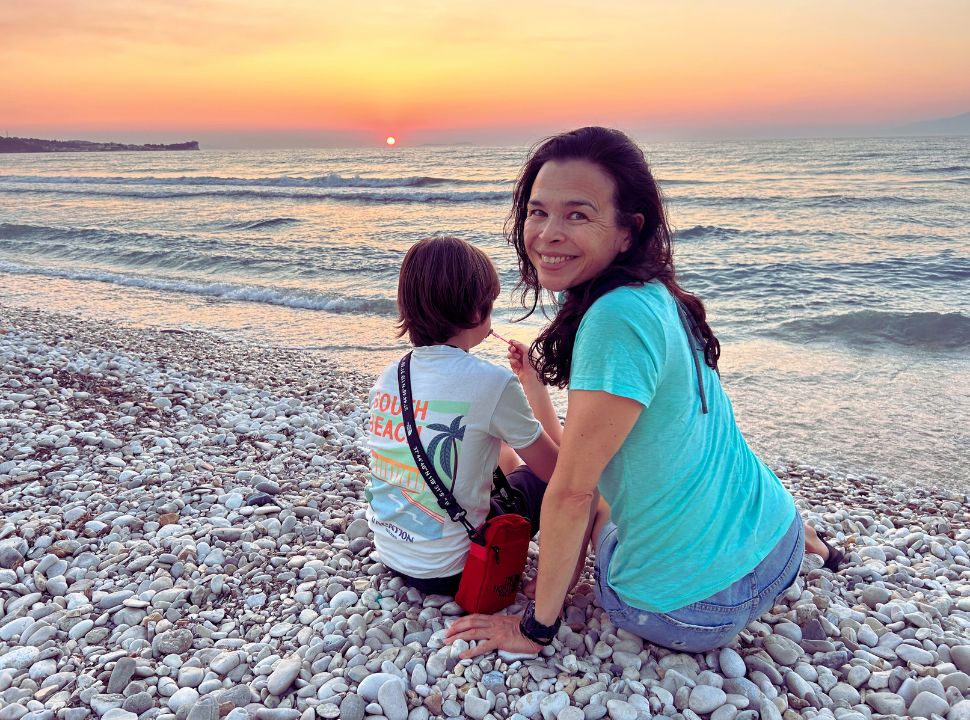
Monico was born in Kuwait and grew up in Indonesia, Malaysia, and Australia, which gave her a unique perspective on the world from a young age. Her first solo travel experience took her to Indonesia, where she volunteered at an orangutan rehabilitation center, and since then, she has focused her travels on environmental and conservation projects in places like Panama and Australia. Along with her love for wildlife, Monico enjoys exploring historic European cities, swimming in the sea, and tasting street food in Asia. She’s also passionate about sharing her experiences of living abroad, inspiring readers to embrace new cultures and adventures. Monico’s future travel goal is to explore more of South, Central, and North America.
